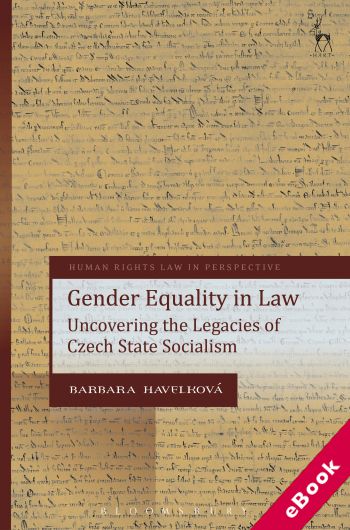
The device(s) you use to access the eBook content must be authorized with an Adobe ID before you download the product otherwise it will fail to register correctly.
For further information see https://www.wildy.com/ebook-formats
Once the order is confirmed an automated e-mail will be sent to you to allow you to download the eBook.
All eBooks are supplied firm sale and cannot be returned. If you believe there is a fault with your eBook then contact us on ebooks@wildy.com and we will help in resolving the issue. This does not affect your statutory rights.
The book explores the factors that have contributed to the resistance to adopting and fully implementing gender equality law in Central and Eastern Europe, observable especially in the process of harmonisation with EU acquis. Using the example of the Czech Republic, the book analyses how gender has been regulated by law and understood by the legal community in the previously unexplored context of Central Europe during the periods of State Socialism (1948-1989) and Transition (1989-today). It explores the continuities and discontinuities that exist between these periods, with regard to both the legal regulation of women and gender, as well as the way that law-makers, judges and legal scholars have thought about gender equality. In the foreground, it examines legal developments in gender-relevant areas, most importantly in equality and anti-discrimination law. But the book goes beyond a doctrinal legal analysis - it excavates the underlying, sometimes hidden, but crucial understandings of key concepts such as 'women', 'gender', 'equality', 'discrimination' and 'rights'. It is argued that these understandings significantly determine whether the legal provisions adopted by the legislature or the executive, and the interpretation given them by the courts, are gender-progressive, ie counteracting patriarchy, or not.